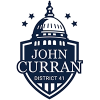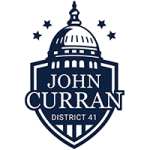Governor’s Office Daily COVID-19 Q & A
April 4, 2020
Illinois Arts Council
Q: Is there assistance available for members of the arts community (i.e. artists, performers, art
students, et.)?
A: Non-profit arts and cultural groups of any size can apply for grants of $3,000 to $60,000,
based on their financial need. Artists and groups seeking grants can apply online
at artsforillinois.org, a site which will also feature free content from artists across the state;
including performers, singers, poets, painters, writers, dance companies, theater troupes, and
museums.
Insurance
Q: I have symptoms of COVID-19 and would like to be tested. Does my insurance cover the
test? Will I have to pay out of pocket for it?
A: The federal Centers for Disease Control and Prevention (CDC) and the Illinois Department of
Public Health (IDPH) are currently covering the cost of the lab test for COVID-19. Yet, hospitals
might still charge their own fees for collecting the specimens, which then could be billed to the
patient or to the patient’s health insurance issuer. Call your insurance provider to discuss
available coverage. Also, if you are experiencing symptoms of COVID-19, contact your health
care provider or local health department. The Illinois Department of Insurance (DOI) has issued
a FAQ regarding insurance coverage and COVID-19; it can be found here.
Q: I have tested positive for COVID-19. Does my insurance cover my treatment? Will I have to
pay out of pocket for it?
A: Insurance carriers must cover emergency services for an emergency medical condition at innetwork
levels regardless of which provider performs the services. Emergency services include
transportation services, such as ambulance services, as well as inpatient and outpatient hospital
services that are needed to evaluate or stabilize the patient. Many individuals who have
contracted COVID 19 have not required emergency services. Still, exceptional circumstances
may arise.
The Illinois Insurance Code prohibits individual or group accident and health insurance carriers
from imposing any pre-existing condition exclusions, including in connection with COVID 19.
Federal law and state regulations provide protections against preexisting condition exclusions
in health insurance coverage, as well. However, preexisting condition consumer protections do
not apply to short-term, limited-duration health insurance coverage or excepted benefit
policies. We recommend calling your insurance provider to discuss available coverage. DOI has
issued a FAQ regarding insurance coverage and COVID-19; it can be found by visiting:
https://insurance.illinois.gov/Newsrls/2020/03/COVID-19-FAQ.pdf
Q: I had health insurance through my employer and have lost my job due to COVID-19. How can
I get coverage?
A: A person may be eligible for one or more of the following depending on the situation:
I. COBRA
II. ACA exchange: Losing health insurance that you got through your job is considered a
“qualifying event” to enroll in a plan on the exchange. To learn more about this option
visit: https://getcovered.illinois.gov/en.
III. Some ACA enrollees are eligible for grace periods for premiums, click here. Check with
your insurer to ask about payment options available to you.
IV. Medicaid (Department of Healthcare & Family Services). Governor Pritzker has sought
federal waivers that would further the expansion of Medicaid to ensure those without
insurance can seek and receive treatment related to COVID-19. To check if you are
eligible for Medicaid visit the enrollment website.
Q: I have another health problem but cannot get treatment at my usual in network provider
due to COVID-19. Will my insurance cover out-of-network coverage?
A: The Illinois Insurance Code prohibits health insurance issuers from charging higher out-ofpocket
expenses to an enrollee who sees an out-of-network provider at an in-network facility if
there are no in-network providers available. However, if you willfully choose a non-network
provider when an in-network provider is readily available, you might be subject to higher outof-
pocket expenses. DOI has issued a FAQ regarding insurance coverage and COVID-19, click
here.
Housing
Q: Are the following in compliance with the Governor’s Executive Order 10? Some landlords are
charging daily late fees for non-payment of rent even if the renter is now unemployed. It is
unclear if the property has no ties to federal vouchers or mortgages. Also, there are renters
refusing to pay rent, even if they are still employed and working from home.
A: Under Executive Order 10 and as extended by Executive Order 18, all state, county, and local
law enforcement officers in the State of Illinois are instructed to cease enforcement of orders of
eviction for residential premises for the duration of the Gubernatorial Disaster Proclamation.
No provision contained in Executive Order 10 shall be construed as relieving any individual of
the obligation to pay rent, to make mortgage payments, or to comply with any other obligation
that an individual may have under tenancy or mortgage.
Q: With the stop of evictions, is there any relief for landlords who aren’t receiving their rent
payments?
A: The mortgage corporations Freddie Mac and Fannie Mae are offering lenders who have been
impacted by COVID-19 some flexibility regarding their mortgage. People who experienced a
reduction in their income may qualify for reduced payments. It is possible that other mortgage
companies may also provide similar relief. Be sure to check with your individual lender for
additional information and check whether you qualify. Do not stop making payments without
speaking with your lender.
Business Aid
Q: There is a DCEO Downstate Small Business Stabilization fund that is available for
communities to apply on behalf of their businesses. I have heard that the application process is
extremely lengthy and requires public hearings for businesses. Is there a way to simplify this
application process so downstate communities can effectively take advantage of the program?
A: The public hearing component of the small business stabilization fund is a federal
requirement for all Community Development Block Grant loans. However, public hearings can
now be held in a virtual manner and required the reasonably advance notice has been reduced
from 7 days to 5 days. For more information, please review the Guidebook and the Downstate
Small Business Stabilization Program FAQs here.
Elections
Q: What directions and assurances are being put in place by State Government to hold local
election authorities accountable for adhering to the law and continuing to provide the right to
public access and poll watching as incoming vote by mail ballots for the Primary Election are
being counted?
A: Illinois statute requires local election authorities to provide public access to in-person
oversight of the election processes. The State Board of Elections does not issue written
guidance to local election officials. If a resident has a complaint that has not been addressed,
they should contact the Illinois Attorney General’s Office and/or their local State’s Attorney.
Q: Does the public have the right under the Stay at Home Order to travel to local election
authorities to participate in oversight of our Primary Election Results?
A: The Stay at Home Order provides that all persons may leave their home or places of
residence for Essential Governmental Functions, among other activities. Essential
Governmental Functions include all services provided by the State or any municipal, township,
county, subdivision or agency of government and needed to ensure the continuing operation of
the government agencies.
Q: Does anything under the Governor’s Executive Orders issued for COVID19 give election
authorities the right to bar public access to their facilities?
A: The Stay at Home Order provides that all public and private gatherings of any number of
people occurring outside a single household or living unit are prohibited, except for the limited
purposes permitted by this Executive Order. Essential Governmental Functions are among the
limited permissible functions, though each government body shall determine its Essential
Governmental Functions.
Q: Will State officials hold all local election authorities accountable for adhering to the April 7
canvassing date for the Primary Election?
A: The State Board of Elections does not have the authority to sanction local election
authorities for failing to meet certain deadlines. However, the State Board of Elections is in
contact with local election officials to ensure that potential issues are addressed and to offer
assistance when needed.
Q: What direction is being given to States Attorneys and municipal/county/state police
authorities to ensure the public has access to in-person oversight of our election processes?
A: The State Board of Elections does not issue guidelines for State’s Attorneys or
municipal/county/state police authorities regarding public access. Illinois statute requires local
election authorities to provide public access to in-person oversight of the election processes. If
a resident has a complaint that has not been addressed, they should contact the Illinois
Attorney General’s Office and/or their local State’s Attorney.

